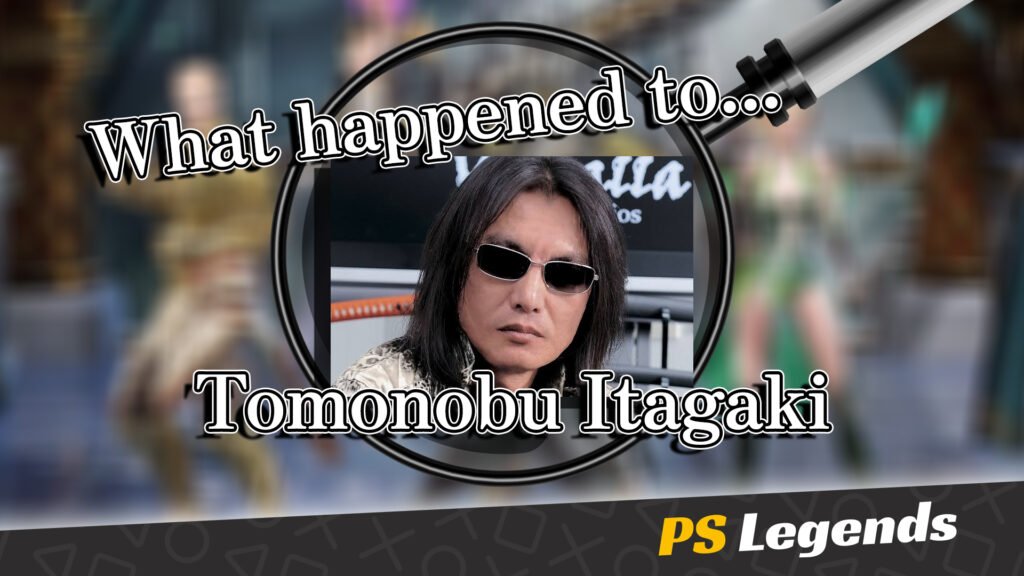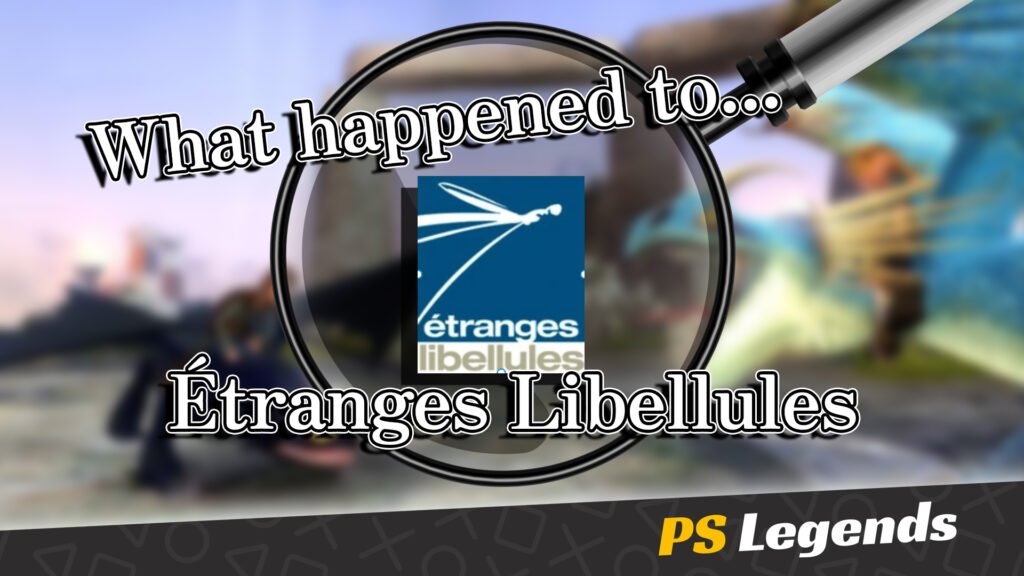On This Page
The Man, The Myth, The Sunglasses
Tomonobu “Tom” Itagaki is a Japanese game designer who created the hugely popular Dead or Alive fighting games. He is also credited as the man behind the resurrection of the Ninja Gaiden series. Both franchises turned out to be commercial successes and earned him several promotions. He is renowned in the industry for wearing ‘rock star’ attire, such as jackets and sunglasses, and for making frank comments, positive and negative, directed at other developers and games.
Born in 1967, Itagaki graduated from Waseda University Senior High School in Tokyo in March 1985. Following that, he entered Waseda University, and graduated from its School of Law in March 1992, however he did not pursue a career in law. Itagaki joined Tecmo in 1992 as a graphics programmer, and initially worked on the Super Famicom version of Tecmo Bowl, an American football game.
Itagaki was mentored by Yoshiaki Inose, creator of the original Ninja Gaiden series, and Akihiko Shimoji, the creator of Tecmo Bowl in his early years at Tecmo. Itagaki was inspired by them to mix business and pleasure, including an element of fun as a necessary component in his projects. He is married, and has a daughter, born in 1997, whom he has mentioned to be one of the primary influences on his projects, and is his constant gaming partner in multiplayer games.

The King Of Fighters
His career breakthrough came in 1996 with the first Dead or Alive game which was based on Sega’s successful 3D beat-’em-up, Virtua Fighter, and created in response to Tecmo management’s request. Itagaki pushed for a more narrative-driven fighter with a female protagonist which divided his colleagues at Tecmo, however the game was a huge success, and triggered Itagaki’s steady rise through the company.

Dead or Alive saw a staggered release, initially for arcades in 1996, followed by home ports for the Sega Saturn in Japan only, during 1997, and finally for the PlayStation worldwide in 1998. The highly anticipated sequel would follow a similar release structure. Dead or Alive 2 also began in arcades and was ported to the Sega Dreamcast in February 2000 as Tecmo’s only Dreamcast game.
An expanded Director’s Cut of the game, also known as Dead or Alive 2: Hardcore, was released as a launch title for the PlayStation 2 featuring additional stages and costumes. It was produced in just two months and contained performance issues which Itagaki protested, requesting additional time to refine the game, however Tecmo executives insisted on releasing it on time. Itagaki was upset by not being able to finish the game on his own terms and became dissatisfied with Tecmo, even considering quitting the industry.
Fortunately, Dead or Alive 2 maintained high review scores and greatly increased the series popularity worldwide, as well as Itagaki’s. He was appointed as the head of the third creative department in April 2001, and later assumed the post of Team Ninja Leader in July 2001. He had sought to create fighting games with details he felt were lacking in other games. Itagaki had built the story of the games around themes of family, such as the relationship between Kasumi, Hayate, and Ayane.

Journey To The West
Itagaki’s ideologies made him a popular and charismatic leader. With the increase in popularity of the Dead or Alive series in the west despite its Japanese themes, Itagaki was chosen by Tecmo executives to develop further games in the series which were marketed at a western audience while still maintaining their Japanese traditions. This bold move would be showcased by making the next few entries in the series exclusive to Microsoft’s Xbox series of consoles.
Itagaki claims to be one of very few in the Japanese gaming industry to establish communications with the western world. He suggests other Japanese developers should do like-wise and be aware of the gaming tastes outside of Japan, so as to be able to reverse the Japanese gaming industry slump of 2005, a communicative improvement which saw Itagaki credited with boosting relationships between Japan and the western world and pushing international game releases.
Under Itagaki’s leadership, Team Ninja continued to push for more daring additions to the Dead or Alive franchise. The Dead or Alive Xtreme Beach Volleyball games were part of this movement, intended just for fun, and to fulfil a ‘love’ for the female characters. Though Itagaki admitted to there being sexualised content in the game, Itagaki refused to create scenarios which he felt were too vulgar for his “daughters”, a term he used to call the female characters.

Forever 17
Itagaki’s punk image and rock star persona made him immensely popular with gamers, mainly teens and young adults who could relate to his ‘party hard’ lifestyle. He would appear more and more frequently in promotional documentary videos, mostly with English translators present or subtitles to promote his upcoming games to the heavily western Xbox audience.
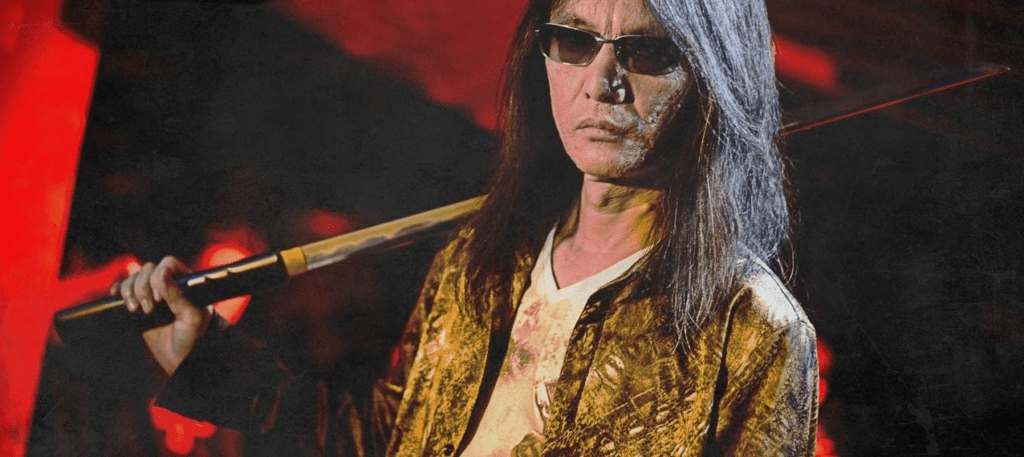
In his office, Itagaki had a set of katanas which his father made for him, which he liked to show to his visitors. To stop people from reading his expressions during gambling-type games, he is always seen wearing sunglasses, a habit which has become his trademark in the gaming industry that he shares in his video footage to maintain his cool, younger image. His promotional videos would also feature rock music, drinking games, and attractive female dancers.
Itagaki would also maintain a no-nonsense stance on his beliefs regarding Japanese youth culture, pushing for a respect of sexualised characters as a personal choice, while identifying the difference between a character being ‘sexualised’ and ‘sexual’, the latter of which never features in his works. He also defends his position of teens being sexualised as an aspect of Japan’s ‘Forever 17’ beauty culture, and considers the character of Kasumi in particular to be his “Venus”, a true beauty and a feminist icon.
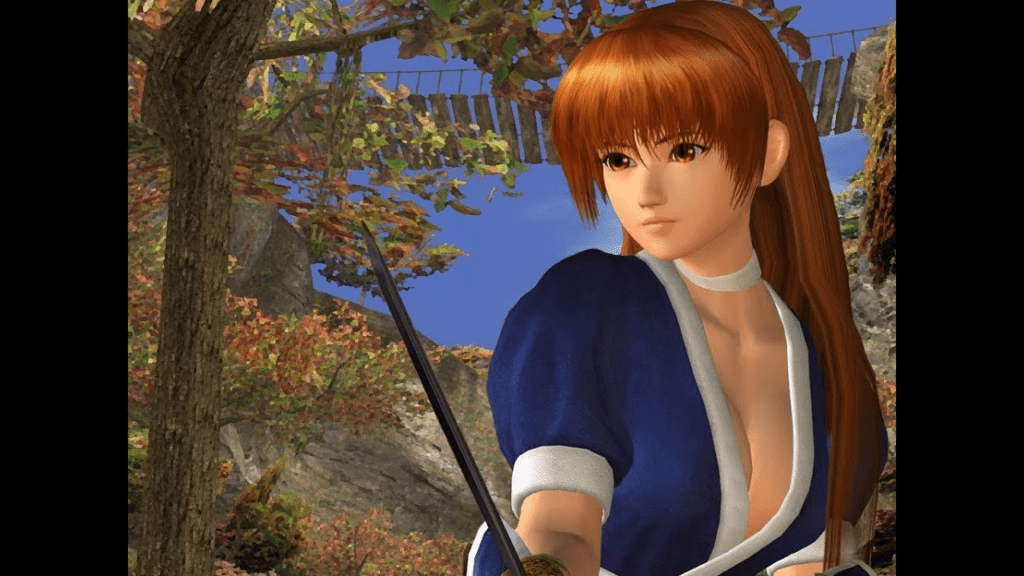
The First Lawsuit
Following the release of Dead or Alive 3 and Dead or Alive Xtreme Beach Volleyball, Tecmo also appointed him as an Executive Officer in June, 2004, and General Manager of the high-end production department in February, 2006. However, his Executive Officer position was taken away in August of the same year, due to his involvement in a sexual harassment scandal.
On November 7th, 2006, various gaming sites reported that an unnamed, female, former Tecmo employee had filed a sexual harassment suit against Itagaki, claiming that he had made several unwanted sexual advances on her since September 2003. While Itagaki admitted to kissing her, he claimed that whatever had gone between them had been entirely consensual. The alleged affair also does not appear to have significantly affected Itagaki’s own marriage.
Tecmo’s ensuing investigation reached the conclusion that “the allegations in question were a result of the former employee’s desire to vent frustration over her own personal affair, and not indicative of sexual harassment.” Tecmo demoted both Itagaki and the accuser for their mingling of “personal affairs with their corporate responsibilities”. Meanwhile, the court found Itagaki innocent of the charges following Tecmo’s findings, and no compensation was awarded to the accuser.
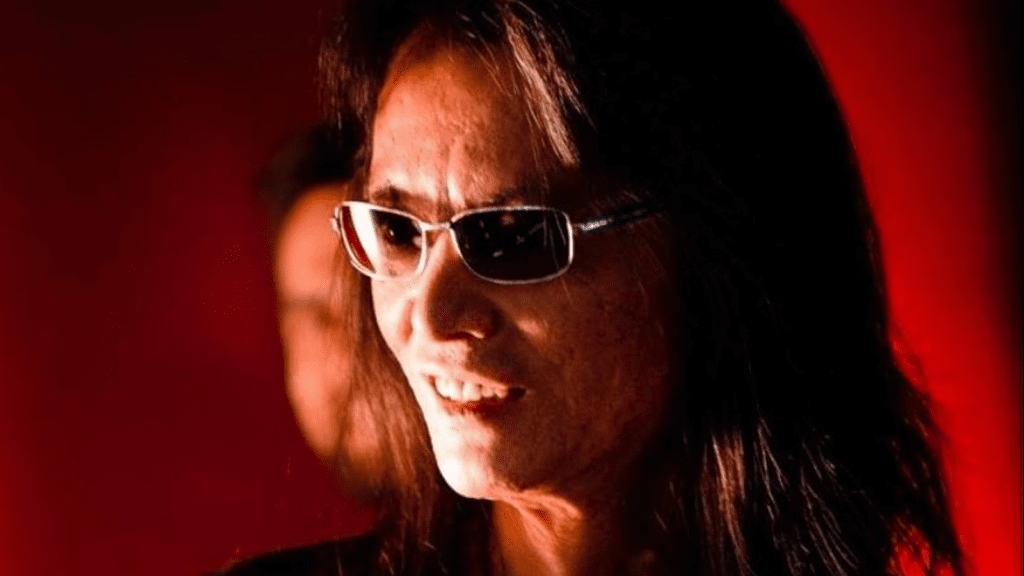
The Second Lawsuit
On June 2nd, 2008, just before the release of Ninja Gaiden II, Itagaki announced that he was suing Tecmo for withholding a bonus promised for his previous works, based on the successful development and sales of his games. His performance-related bonus was rumoured to be valued at several million Yen. He was also suing Tecmo’s president, Yoshimi Yasuda for damages based on “unreasonable and disingenuous statements” made in front of Itagaki’s colleagues.
In an interview, Itagaki said the following about his reasons for leaving Tecmo:
Before the start of development on DEAD OR ALIVE 4, Tecmo Co., Ltd. had agreed to pay a completion bonus to me for the Xbox 360 title, which I produced. However, when the time came for the actual payment, Tecmo Co., Ltd. went against its previous agreement and refused payment. President Yoshimi Yasuda chose not only to violate this agreement, but also turned defiant, telling me if you are dissatisfied with the decision not to pay the bonuses, either quit the company or sue it. In addition, he made demeaning remarks about me to my subordinates and colleagues, causing me significant emotional distress and worsening my personal relationships and work environment. Thus, I have no choice but to resign from Tecmo Co., Ltd.”
Using Yasuda’s comments against him, Itagaki both resigned from and sued Tecmo. He left the company in 2008, after 16 years of service, while also filing a lawsuit against Tecmo for withholding agreed bonus pay. Several Team Ninja staff loyal to Itagaki would also resign alongside him in solidarity. In March 2010, Itagaki revealed that the matter had been settled out of court for an undisclosed sum.

Valhalla Game Studios
In an interview with 1up.com, Itagaki revealed that he was working on a new project with former members of Team Ninja under a new studio known as Valhalla Game Studios which the group founded in 2008. The new game in question, Devil’s Third, was intended to be a departure from Itagaki’s previous genres, being more of a traditional action-adventure title.
Devil’s Third began life as an intended Xbox 360 exclusive to be published by Microsoft Game Studios. After the partnership fell through, Itagaki met with Danny Bilson, then employed at THQ, who would share his vision of the title and agreed to publish it for PlayStation 3, Xbox 360 and PC. However, THQ would eventually be forced to drop publishing the title following their bankruptcy in 2013, leaving Valhalla Game Studios without a partner to release the game.
After losing their initial publisher, Valhalla Game Studios would partner with South Korean company Doobic to produce and publish the title. The Doobic partnership also promised a multi-platform release, including mobile platforms and PC. However, Doobic eventually went out of business, setting back the development of Devil’s Third even further, and leaving Valhalla Game Studios to try to find a partner once again.

An Unlikely Alliance
The setbacks caused by the collapse of both THQ and Doobic landed Devil’s Third in ‘development hell’ for several years. During this time, Valhalla Game Studios CEO Satoshi Kanematsu approached then-Nintendo president Satoru Iwata, who agreed to publish the game as an exclusive flagship title for Nintendo’s new Wii U console. Itagaki stated that Nintendo published Devil’s Third because it wasn’t “a game that Nintendo could make internally, so we came in as their mercenaries to make a strong online game.”
With Valhalla more familiar with PlayStation 3 and Xbox 360 hardware, the game proved more difficult to run on the alternative hardware of the Wii U. Devil’s Third switched engines during its development, as the company responsible for making its original engine, Relic Entertainment, closed down. Despite reports from Itagaki that the game would run perfectly fine on Unreal Engine 3 instead, performance issues were noticed immediately upon the game’s eventual release in 2015.
The game was globally panned by critics, with complaints being made regarding the game’s poor graphics, heavily inconsistent frame-rate, stiff aiming, and input lag. Despite negative reception, Itagaki still thought that the game would be a “breakthrough for the industry”, and that it would elevate the genre to a new level, and even considered developing the game into a trilogy.

Dead On Arrival
The generally poor reception of Devil’s Third combined with the disappointingly slow sales of Nintendo’s struggling Wii U console resulted in Devil’s Third being a commercial failure for Valhalla. In order to recover substantial losses, the team would take swift action in an attempt to recover funds. Itagaki’s team would lend their services to the development of Nintendo’s 3DS Japan-only title, Momotaro Dentetsu 2017: Tachiagare Nippon!
An online multiplayer-only version of Devil’s Third, titled Devil’s Third Online, was released in collaboration with Korean publisher Nexon in Japan in June 2016. This free-to-play Windows version also supported voice-chat, which the Wii U version lacked. The Windows version received positive reviews in Japan yet still struggled to find its player-base, and was discontinued in March 2017.
The struggling developer would downsize over the next few years, while ownership of the company would change hands. Valhalla’s parent company, Wake Up Interactive, was acquired by Tencent for $44 million in November 2021. The following month, Wake Up merged the staff and operations of Valhalla Game Studios into another subsidiary, Soleil Ltd., effectively closing down Valhalla as of December 2021.

A Samurai And A Warrior
Prior to Valhalla’s closure, Itagaki’s team had already begun supporting Soleil in their development of the newest game to tie in with American animated TV series, Samurai Jack. Itagaki would fill the role of ‘Supreme Advisor’. The action-adventure game Samurai Jack: Battle Through Time would release in 2020, published by Adult Swim Games for iOS, Apple Arcade, Nintendo Switch, PlayStation 4, Windows, and Xbox One, and received generally positive reviews from critics.
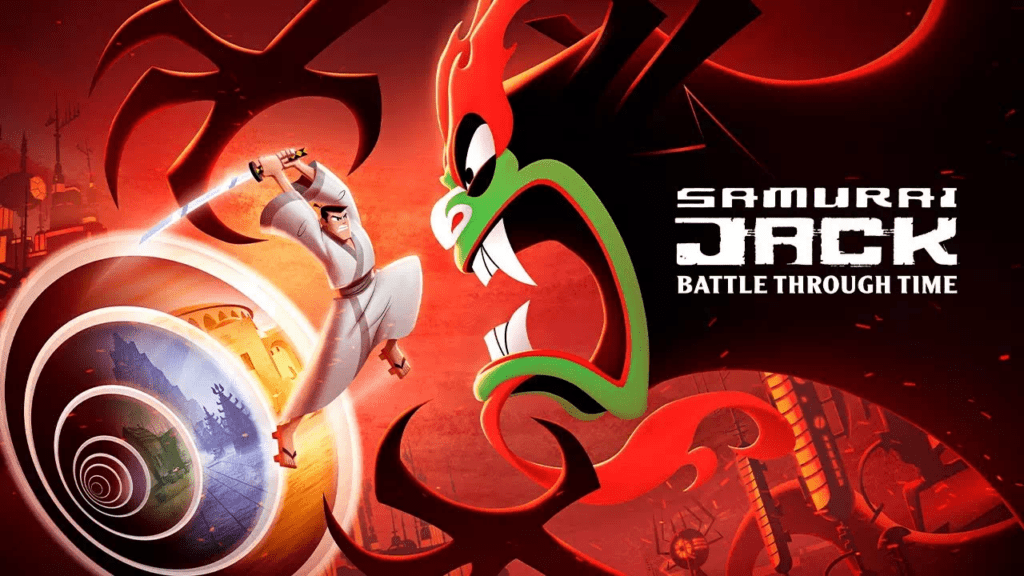
In January 2021, Itagaki announced that he had left Soleil and formed a new game studio, Itagaki Games, which was incorrectly revealed to be dissolved soon after by members of the gaming media. The studio had actually rebranded, taking the more inclusive name of ‘Apex Games’. In July 2022, Itagaki announced that Apex Games is working on a new project, known only as ‘Warrior’.
